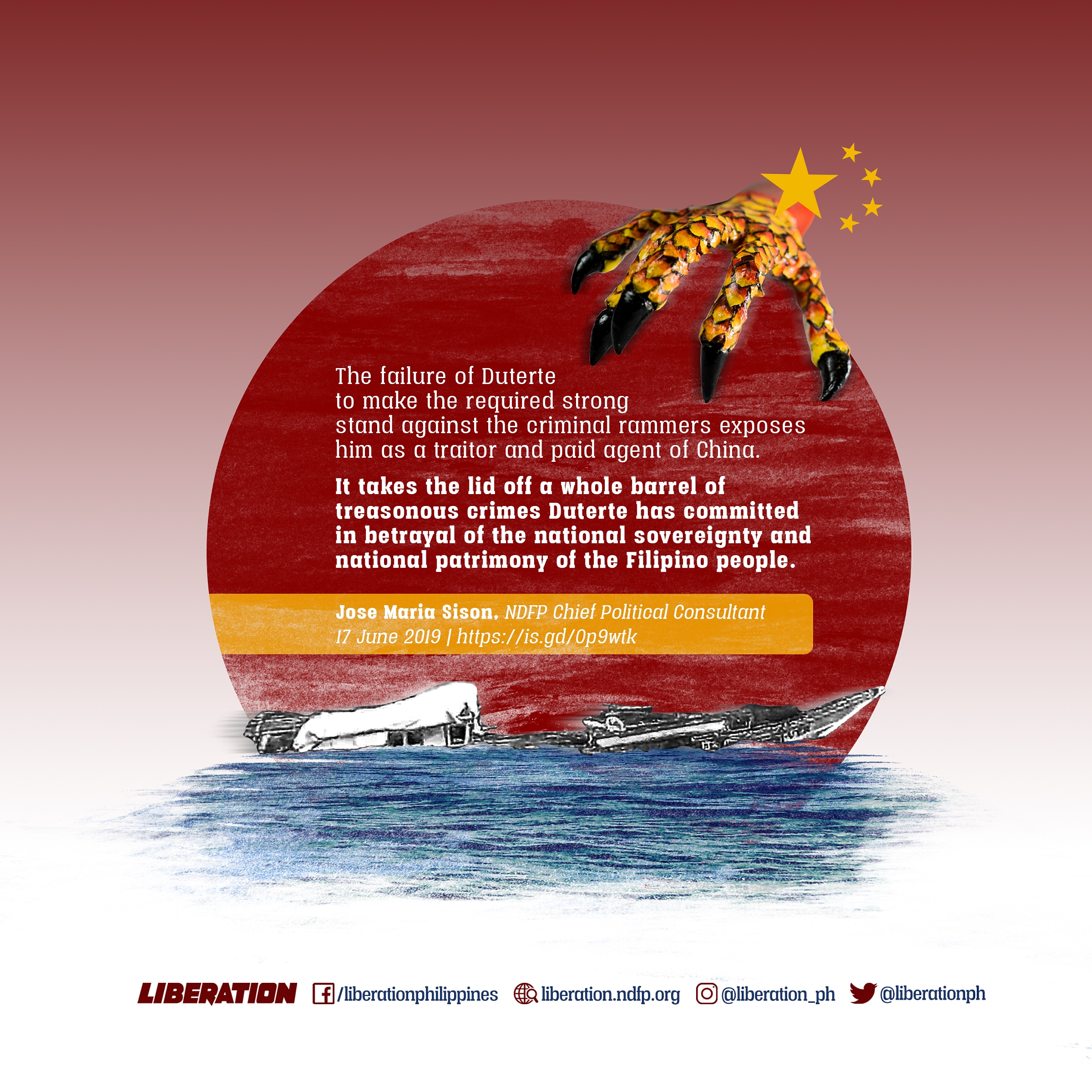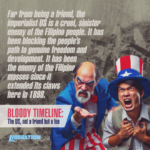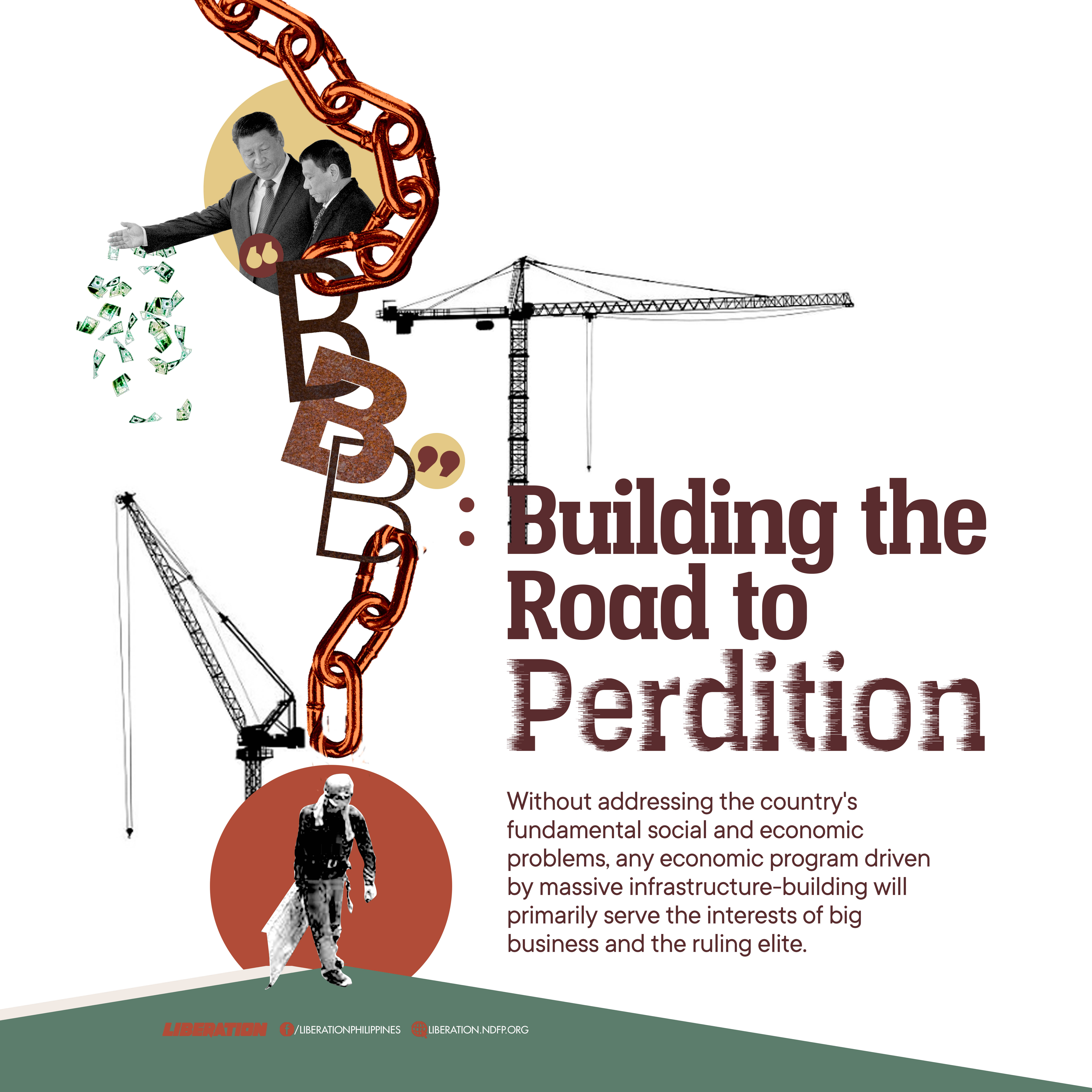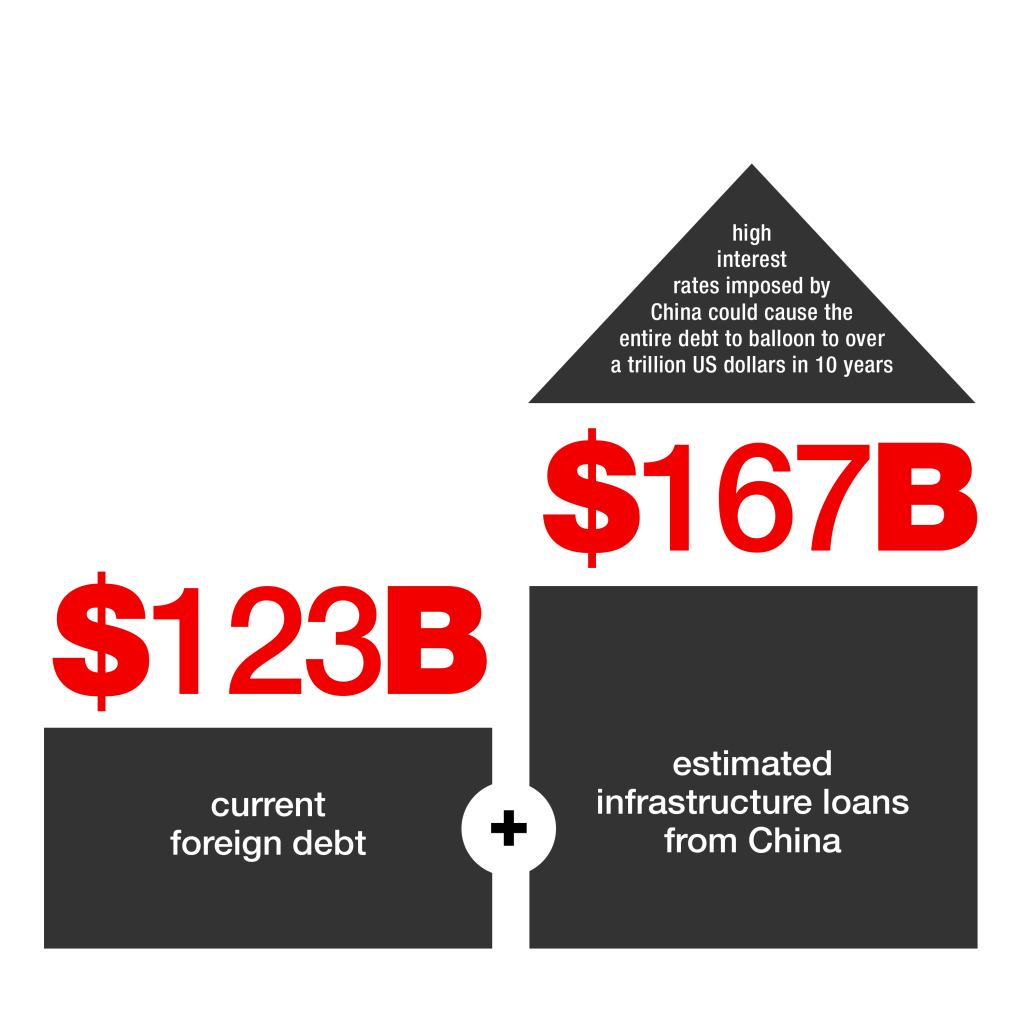The Revolutionary Movement of the Filipino People is Indestructible due to Oppression and Exploitation
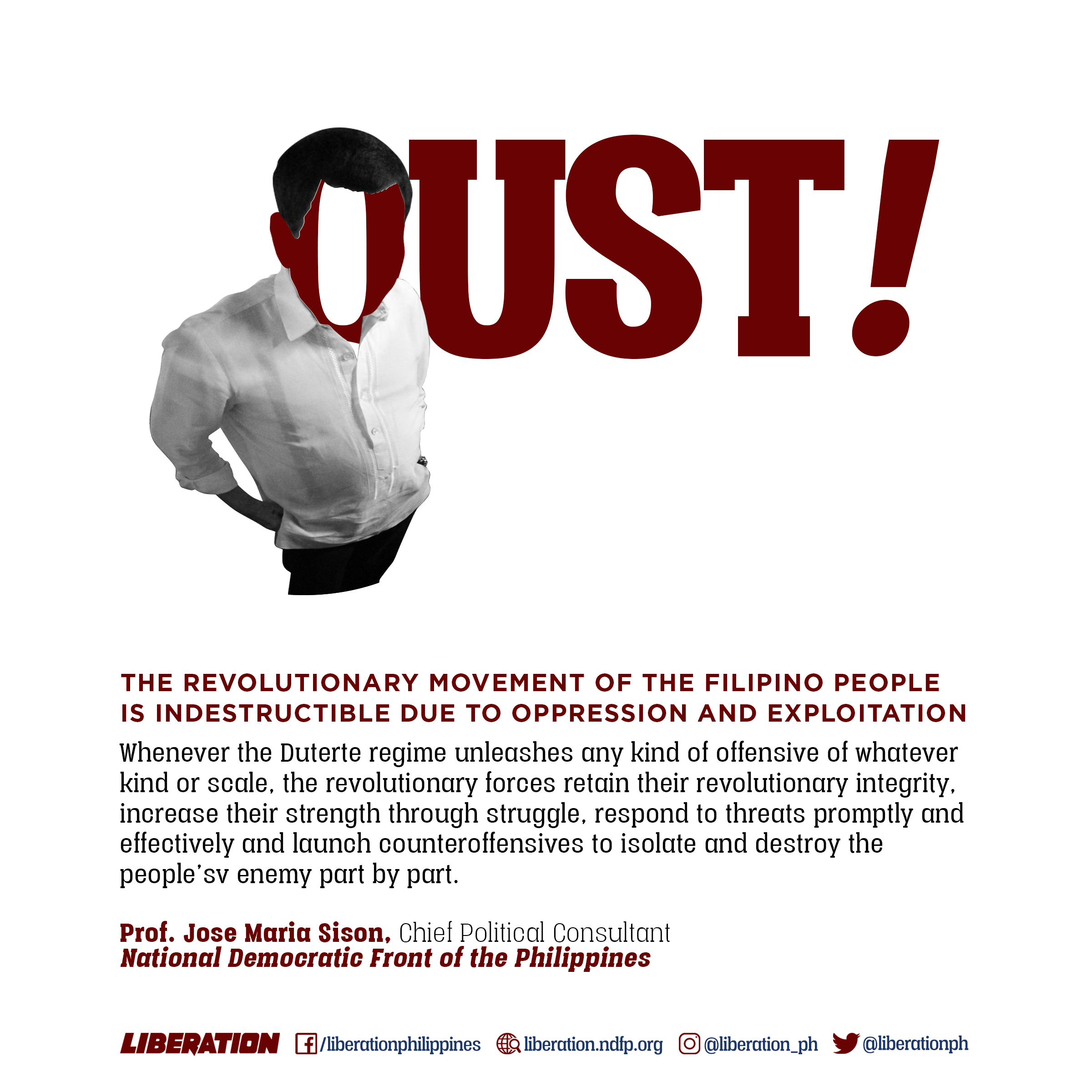
Chief Political Consultant / National Democratic Front of the Philippines
June 18, 2019 | https://is.gd/nMr1N1
Duterte and his political agents and armed minions keep on boasting that they can destroy the revolutionary movement of the Filipino people. However, they keep on moving their deadline because every previous deadline proved to be false.
The revolutionary movement of the Filipino people is indestructible because of its just cause of national liberation and democracy against foreign monopoly capitalism, domestic feudalism and bureaucrat capitalism.
As long these three evil forces oppress and exploit the people, the ground will remain fertile for such revolutionary forces as the Communist Party of the Philippines (CPP), the New People’s Army (NPA) and the National Democratic Front (NDFP) to thrive.
No party or group of traditional politicians servile to US imperialism and representative of the exploiting classes of big compradors and landlords are capable of taking initiative away from the revolutionary forces that uphold and carry out the people’s democratic revolution.
The revolutionary movement is indestructible because of the objective semicolonial and semifeudal conditions that have given rise to it and because every major revolutionary force knows how to preserve itself and increase its strength through struggle.
The CPP ceaselessly engages in ideological, political and organizational building. It has thus become a formidable force nationwide and it is deeply rooted among the toiling masses due to its correct revolutionary theory and practice and its general program of people’s democratic revolution through protracted people’s war.
The NPA is under the correct leadership of the CPP and is effectively carrying out the strategic line of people’s democratic revolution through protracted people’s war. It integrates revolutionary armed struggle with agrarian reform and mass base building, which includes the building of revolutionary mass organizations and local organs of political power.
The local organs of political power constitute the People’s Democratic Government. It is led by the CPP and the NDFP ensures the unity of the people in their millions through the mass organizations and alliances. It is the revolutionary government of workers and peasants which is fighting to get rid of the counterrevolutionary government of the big compradors, landlords and bureaucrat capitalists subservient to US imperialism and other imperialist powers.
Whenever the Duterte regime unleashes any kind of offensive of whatever kind or scale, the revolutionary forces retain their revolutionary integrity, increase their strength through struggle, respond to threats promptly and effectively and launch counteroffensives to isolate and destroy the people’s enemy part by part.
Duterte is incompetent to talk about the destiny of the Filipino people and their revolutionary movement. Even if he is incoherent most of the time, he is sometimes coherent, such as when he admits that he is overwhelmed by Philippine problems and wishes to hang himself. He himself is currently the most most notorious personification of bureaucratic corruption in the Philippines.
Duterte and his political and military agents think that they can discredit and destroy the revolutionary movement of the Filipino people by pursuing the anti-communist line. But neither socialism nor communism is in the agenda. The Filipino people and the revolutionary movement are focused on carrying out the people’s democratic revolution as the prelude to the socialist revolution.###




